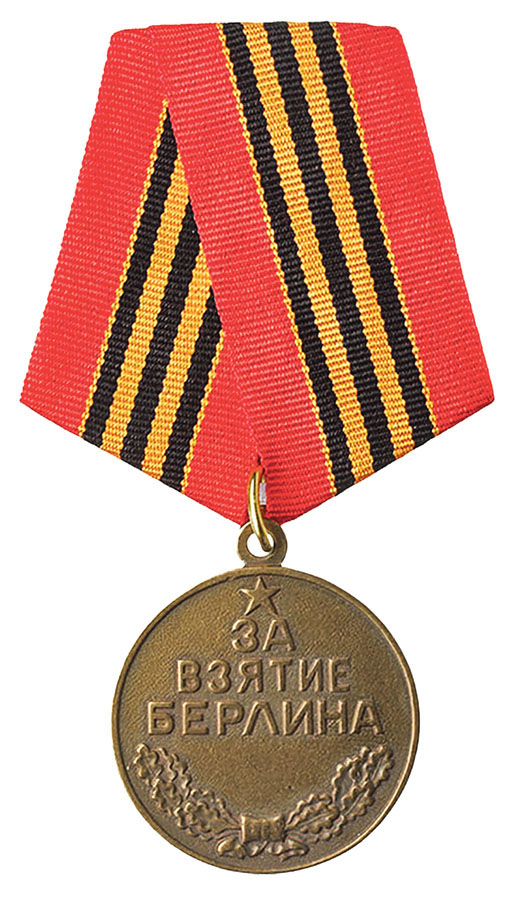Fragile but strong in spirit

The female face of war: frontline nurse Lidia Volkova met May 1945 in Berlin and left her autograph on a column of the Reichstag
From childhood, Lidia Volkova wanted to be a doctor. Yet, she could not even imagine that her dream would come true in such a terrible way — in the war, where she would have to save lives on the bloody battlefields near Stalingrad, Kursk, Prokhorovka, in the Majdanek death camp and finally in defeated Berlin. The frontline nurse welcomed Victory on the doorstep of the Reichstag.
Three days straight without sleep
 Lidia Volkova, veteran of the Great Patriotic War
Lidia Volkova, veteran of the Great Patriotic WarIn December 1941, Lidia became a nurse in the 27th independent medical reinforcement company. There were so many wounded that she often worked for three days straight without any sleep. She occasionally rested in tents, in the field, in whatever premises were available. The veteran recounted, “I helped the doctors, assisted during surgeries, treated and bandaged wounds, applied splints, and removed shrapnel. It was important to administer anti-shock fluid in time, administer painkillers, and even perform blood transfusions.”
 For the Capture of Berlin
For the Capture of Berlin medal
The heaviest fighting was the tank battle near Prokhorovka. There were many wounded tank crewmen with terrible burns to their faces and hands. Soldiers reacted differently to their injuries: some remained patiently silent, some groaned, some swore loudly. “We also helped captured Germans, mostly pilots. I noticed that at the beginning of the war they were so arrogant and proud, but near Stalingrad they became quiet. It was clear they already felt they could not win,” Lidia Kondratyevna [Volkova] recalled.
Next came the Central, Steppe and 1st Byelorussian Fronts.
In Siedlce, Poland, she also provided assistance to the wounded, mainly with shrapnel wounds and various fractures. Incidentally, 72 percent of the wounded returned to the front after treatment, which spoke to the high level of professionalism of the medics. It was in Poland that Lidia received the medal For Military Merit.
‘Comrades, Germans have capitulated!’

After Majdanek, Lidia found herself in Germany. There are only a few military photographs in her photo album. Several are especially precious — they were taken on May 8th in Berlin, “On that day, I ended up there, you could say, by chance. The commander decided to arrange a tour for us. We travelled in a truck through an unusually quiet Berlin, where there were no shots or explosions. We went around the Reichstag, went inside — into the assembly hall. Suddenly, the deputy political officer of the 1st Byelorussian Front arrived, took off his cap and shouted: ‘Comrades, Germans have capitulated!’ I sat down on a step, touched myself, as if not believing what was happening. My first thought was: ‘Am I really alive?’ The emotions were overwhelming — some people were crying, some were embracing each other, some were singing.”
Lidia saw our soldiers signing their names on the columns of the Reichstag. Some were also marking their battle routes. The lieutenant of the medical service also left her autograph there. “I wrote in abbreviated form: ‘Stanislav, Stalingrad, Berlin’ and signed it as best I could. We actually wrote with fragments of debris. The columns were covered in some kind of lacquer, and it was easy to scratch them.”
At the end of the war, her medical reinforcement company No. 27 was transferred to Potsdam, where she worked in a polyclinic until January 1950 — first in the surgical room, then in the children’s clinic, “In this German city, I also met my future husband, Vasily Volkov, who was in the military. A friend persuaded me to go dancing at the Officers’ Club. I bought a dress and shoes, and braided my hair. During the war, we all had our hair cut short like boys, but then we could at least do some coiffure. So one young man turned out to be very persistent, asked me to dance, and then walked me home.”
During one of her meetings with journalists, Lidia Kondratyevna showed a wedding photograph. In the picture, the bride is in a long white dress and veil, and on the right is the groom in military uniform. This photo was taken in Berlin in 1949: it was there that the happy couple, Lidia and Vasily Volkov, got married. The couple lived in harmony for 75 years.
Since her husband was in the military, they had to move around to different cities for a long time. In Bobruisk, Lidia finished evening school and still did not give up on her dream of becoming a doctor. In Leningrad, she graduated from medical institute and became a general practitioner. A little later, in Moscow, she also took additional courses to become a paediatrician. Her last place of work was Children’s Polyclinic No. 4 in Minsk, where she was a paediatrician.
The Order of the Patriotic War 2nd degree, medals For Military Merit, For the Defence of Stalingrad, For the Defence of Kiev, Defender of the Fatherland, the badge For Excellence in Sanitary Service — each award is special for Lidia Volkova. They represent not only the combat path of this fragile, but very strong-spirited woman, but also her youth, the carefree charm of which was taken away by the war once and for all.


Photo courtesy of war veteran Lidia Volkova
By Tatiana Semyonova




